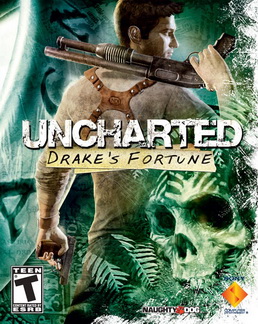What's the best way to tell a story? What medium seems to carry on this tradition in the most immersive way? For most, it means being an observer. We listen to others as they talk, listen to the radio, or watch television. We read books.
 |
| The Sims, by Maxis for the PC. A video game that allows the player to "create" their own "stories" and "characters". |
However, the expanding art of video games seems to introduce a great potential for the kind of expression that stories inspire. There is a sense of complete immersion, audio/visually, mentally and physically that can be achieved in the act of playing video games. Some view this as a very positive thing, some negative.
In this semester's Game Design class, I plan to explore storytelling as it relates to gaming, and provide examples how games can translate storytelling in many ways that other media may or may not do, while comparing their similarities and the juxtaposition of storytelling within games as opposed to other types of games (i.e fighting, strategy, shooter etc).
These blog posts seek to understand the importance that lies in not what stories are told, but how they are told, and how that affects our reception to them. It will to explore the expectations we have begun to have for games. It will try demonstrate the differences that stories play in all our lives, do we seek stories as a total immersion, as in living vicariously through the scenarios in which we could not hope to experience ourselves? Or do we use stories to deflect the truth? To try and detach ourselves from the moments in our lives that become too much or to serious?
 |
| Uncharted, a game series on PS3, that I think provides an excellent example of storytelling. |
What grounds do stories in video games cover that other forms of media do not? What is limiting, or not limiting about storytelling potential? Is one medium better than the other? What do people prefer?
Do some stories not work in games? Are there sequences that just don't work with the manipulations and conventions of they way video games present information?
These are questions that I want to find answers to this semester. Often, I have thought about the appeal of storytelling in the video game media as opposed to novels, since I myself am a writer. I've considered actually trying to create stories that would constitute a solid basis for a video game, and have often wondered what the transparency is like between both mediums.
No comments:
Post a Comment